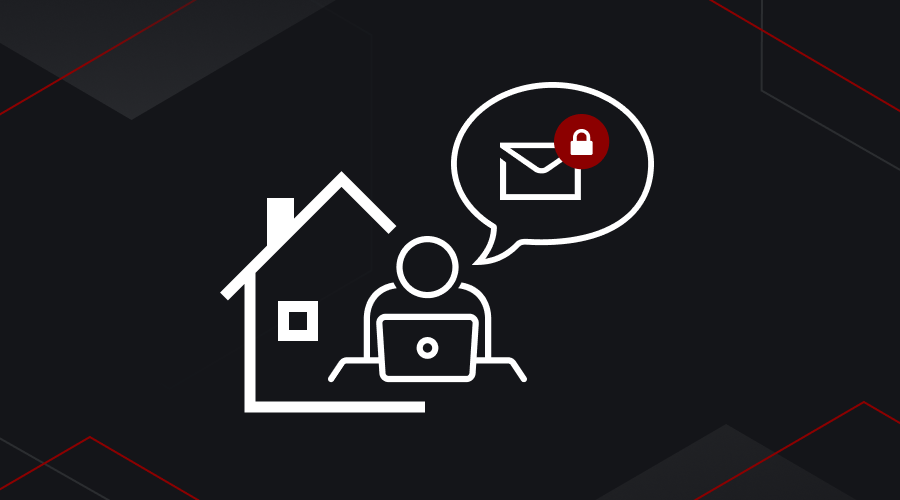Working from home was regarded as “the way of the future”, and like it or not, the future is here.
Not the future we wanted, or the future we expected, but the future we need to adjust to, as the quarantine has only just begun.
The next few months will bring companies a lot of new problems, one of which would, of course, be email communication. Without changing anything in itself, email now poses a significant risk to corporate well-being, largely because most companies are only testing out “working from home” waters.
Companies should not only adjust to the new order of things, but re-do all the security work once again to ensure that email communication does not hinder the usual workflow, keeps all data safe, and keeps it under the company’s control.
Why Is Email Communication So Dangerous When Working From Home?
The first thing on the to-do list of any worker when working from home should be a revision of updated remote work policies, to find out the best security practices.
In reality, many workers neglect the need to do that and start from getting access to all the corporate data, remote desktops, confidential documents, instructions, all of that. All through email.
Scammers understand this and leverage this behavior in their phishing campaigns. The number of phishing attempts since pandemic hit the world is astonishing, and most of those phishing emails steal user credentials or deliver malicious files in attachments, who have a great chance of infecting the victims since their machines are protected rather poorly in general.
When discussing the factors that have to be considered when adapting to work from home, people often talk about Virtual Private Networks (that they will download for free), about password managers (installed in the out-of-date web-browsers), or about multi-factor authentication, that is only as effective as the user is diligent.
We also should not forget about the “human factor”.
It’s not all about clicking on links in phishing emails, that will be delivered without any complications for the lack of spam filters, scanners or gateways. “Human factor” is also about the tendency to trust, the habit of forgetting, and the need to “take a shortcut”. Working from home makes people more complacent, as they don’t feel that they are watched over as much.
The email itself possesses danger not only for the “recipients” but also for the “senders” also, as employees can unwillingly send a sensitive email to the wrong email address.
Is there any way to recall such an email? Can you retrieve the access rights of someone who has already seen the email’s content?
How to Be Understanding to Remote Workers Without Sacrificing Their Digital Security?
In a crisis, you have to work not only harder, but smarter. Sadly, only the companies that will do so will experience a brighter future.
So how can you ensure the security of your workforce, while having viable indicators of employee activity? There’s no way to do so in an email, that is, of course, if you’re not using a web beacon.
Taking into consideration the latest trend of working from home and the uprise of cyberattacks facilitated through email, we have to look for a solution that would make it harder for employees to do the wrong thing, and easier for them to do the right thing. All while giving the company enough visibility into the work rate of their employees.
A good solution in this situation would have to work accordingly with the following cybersecurity criteria:
- Email data is encrypted in rest and at transit, the encryption is carried out on the user’s device;
- Email data is never exposed to open email relays;
- Protected storage and the encryption keys are under the company’s control;
- The ability to recall emails, limit screenshotting, copying and forwarding is in place;
- The solution is legally compliant.
All the points mentioned above are present in StealthMail.
Understanding the issues companies have met amid the crisis, StealthMail offers a free service subscription until the times are good again, to make your work from home more secure. You can start your free trial now, with no restriction on the number of users, and get a free trial for Microsoft Office 365 and Teams.
Take care of yourself and be wary of others!
Link in die Zwischenablage kopiert!

